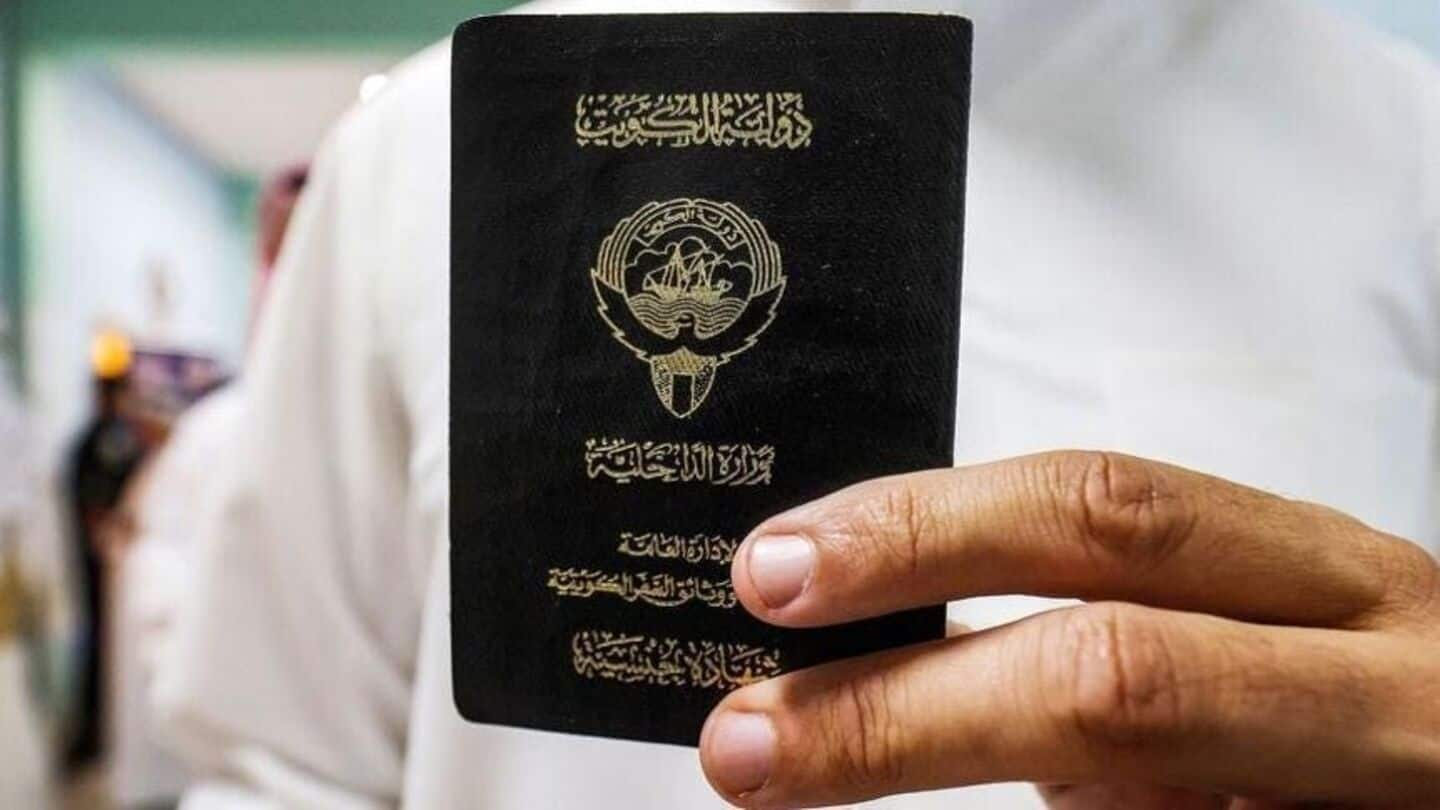
'Stateless overnight': Kuwait strips over 37,000 of citizenship
What's the story
Kuwait has revoked the citizenship of over 37,000 people, mostly women who were naturalized through marriage. The policy is part of a "reformist" agenda led by Kuwaiti Emir Sheikh Meshal al-Ahmad Al-Sabah. The aim is to restrict nationality to those with blood ties and reshape Kuwaiti identity after years of political crisis, AFP reported.
Policy details
Citizenship revocations part of reformist agenda
After taking power in December 2023, the Emir dissolved parliament and suspended parts of the constitution. His latest citizenship policy appears aimed at restricting nationality to those with blood ties to the tiny, oil-rich nation, AFP said, citing analysts. In March, in a televised speech to the country of nearly five million, only a third of whom are Kuwaitis, the emir pledged in March to "deliver Kuwait to its original people clean and free from impurities."
Impact
Over 37,000 people lose Kuwaiti nationality
Since August, over 37,000 people have lost their Kuwaiti nationality. This includes at least 26,000 women. The revocations also target dual nationals and those who obtained citizenship fraudulently. Notably, even naturalized citizens who contributed to Kuwait's culture have been affected; pop singer Nawal The Kuwaiti and actor Dawood Hussain are among those stripped of their citizenship.
Policy change
Naturalization by marriage abolished, targeting women
The latest policy also abolishes naturalization by marriage, which only applied to women. It revokes the citizenship granted to wives since 1987. Official data shows 38,505 women were naturalized by marriage from 1993 to 2020. This move has left many in legal limbo as they try to restore their previous nationality.
Human rights
'Right to nationality is a very basic human right'
Amnesty International's Mansoureh Mills emphasized that "the right to nationality is a very basic human right." The revocation of citizenship has raised concerns about identity and nationhood in Kuwait. While large-scale citizenship revocations are not unheard of in Kuwait, "the volume is definitely unprecedented", said Bader al-Saif, assistant professor of history at Kuwait University.
Criticism
Critics argue new leadership has exclusionary vision
Critics argue that the new leadership has an "exclusionary vision of Kuwaiti nationalism." Giorgio Cafiero, CEO of Gulf State Analytics, said it aims to reduce the citizen population for a more politically manageable electorate. The revocation of citizenship was initially welcomed as a crackdown on fraudsters, but soon turned controversial when innocent women were also affected.